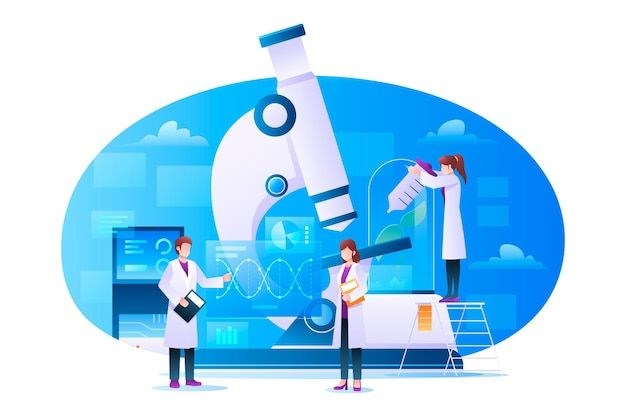Technological advances in biotech are becoming one of the most effective tools to combat the growing problem of antibiotic resistance in healthcare. Antimicrobial drugs are becoming less effective at a very high rate thus making conditions that could otherwise be managed less dangerous much more lethal. Biotech presents new technologies and strategies of attacking pathogens that do not have implications on existing models of drug resistance and thus enhance public health.
Another emerging fancy is bacteriophage application, which is a virus that targets and kills particular bacteria. Thus, in contrast to broad-spectrum antibiotics, they can eliminate only pathogens without affecting the useful bacteria. These phages are being developed more precisely, made more effective and in such a way that is less likely for the bacteria to develop a resistance to, allowing for more targeted medicine.
Biotech is also changing the diagnosis with effective genetic testing equipment. These help the healthcare providers to quickly establish the antibiotic-resistant bacteria and get the best treatment for the patients at the earliest. This also enhances the efficacy of the treatment process while at the same time minimizes cases of resistor in clinical facilities due to misuse of the antibiotics.

Moreover, current biotech organizations are studying new generation antimicrobial peptides and synthetic molecules, which target biofilms and interfere with bacterial quorum sensing. These are different from the normal antibiotics since they are bioengineered and their structures cannot be easily attained by the bacteria. Their use in healthcare may greatly help in changing the ways Chronic and resistant infections are handled.
Lastly, Biotech is closely involved in antibiotic stewardship initiatives to establish more evidence-based techniques in the usage of antibiotics. These platforms assist healthcare organizations in increasing rational use of antibiotics, monitoring resistance, and taking the necessary measures quickly. Therefore, biotech inventions offer crucial ways to protect global health and sustain antibiotics’ effectiveness to treat bacterial diseases.
Conclusion
In conclusion, Biotech innovations are not only additive, they are critical to the battle against antibiotic-resistant pathogens. As such, I believe that biotechnology presents long-term solutions to this problem through precise therapies, fast diagnosis, and new antimicrobials. Thus, growing resistance, its acceptance of advanced technologies is not desirable but mandatory. This is why the healthcare sector needs to incorporate biotech measures and solutions fully to serve the patient’s needs as well as maintain the effectiveness of antibiotics.